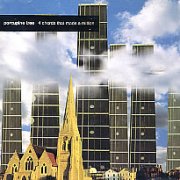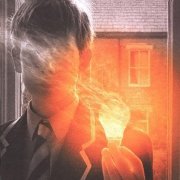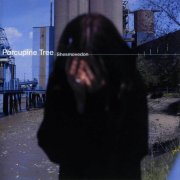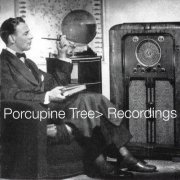




 |
 |
 |
 |
 |
 |
Stupid Dream (1999, 60.02) *****/T½ | |
| Even Less Piano Lessons Stupid Dream Pure Narcotic Slave Called Shiver Don't Hate Me This is No Rehearsal Baby Dream in Cellophane |
Stranger By the Minute A Smart Kid Tinto Brass Stop Swimming |
|
 |
CDS (2000) ****/TT Four Chords That Made a Million Disappear In Formaldehyde |
 |
Lightbulb Sun (2000, 56.22) ****½/T½ |
|
| Lightbulb Sun How is Your Life Today? Four Chords That Made a Million Shesmovedon Last Chance to Evacuate Planet Earth Before it is Recycled The Rest Will Flow Hatesong Where We Would Be |
Russia on Ice Feel So Low |
|
 |
CDS (2000) ****/TT Shesmovedon A Cure for Optimism Untitled |
 |
Recordings (2001, recorded 1998-2000, 61.50) ****/TT½Buying New SoulAccess Denied Cure for Optimism Untitled Disappear Ambulance Chasing In Formaldehyde Even Less Oceans Have No Memory |
 |
In Absentia (2002, 68.20) ****½/TT |
|
| Blackest Eyes Trains Lips of Ashes The Sound of Muzak Gravity Eyelids Wedding Nails Prodigal .3 |
The Creator Has a Mastertape Heartattack in a Layby Strip the Soul Collapse the Light Into Earth |
|
Current availability:
Mellotrons used:
Porcupine Tree are a bit of a conundrum on the Mellotron front; they've credited it on several albums, sometimes on a track-by-track basis, but its veracity has always been slightly doubtful. However, my good friend Neil met keyboard player Richard Barbieri (ex-Japan, of course) at a trade fair, which led to The Mellotron Conversation, in which Barbieri assured the intrepid Neil that (and I paraphrase), "It was real Mellotron on Stupid Dream, Lightbulb Sun and In Absentia, because I played it". However, Thanasis Tsilderikis assures me that band mainman Steven Wilson admitted in a 1997 interview that the 'Mellotron' on '96's Signify was sampled, which it also clearly is on 2005's Deadwing and subsequent releases.
Anyway, Porcupine Tree started life in the very early '90s as a cassette release-only, rather secretive little outfit, basically singer/multi-instrumentalist Wilson working anonymously on his own. Within a few years, the 'Tree became a band proper and started releasing milestones such as '93's Up the Downstair (***½) and the following year's The Sky Moves Sideways (****), fusing psychedelia and progressive influences into an almost-original cohesive whole (with only a slight Pink Floyd influence), while also becoming deservedly really rather popular.
After Signify's sample use, '97's live Coma Divine (*****) effectively put the lid on the 'Tree of old, leaving Wilson free to reinvent their style for '99's Stupid Dream, although if truth be told, it wasn't that different to Signify, in its shorter-song format and more 'commercial' sound (everything's relative...). It's every bit as eclectic as its studio predecessor, just with a few more 'mainstream' songs thrown in and stronger melodies all round, so cries of 'sellout!' are a tad premature, methinks. Highlights include trippy opener Even Less, Pure Narcotic, Don't Hate Me and the sublime A Smart Kid, but the whole album's brilliant, to be honest, especially for, er, 'kicking back' of an evening. The material also translates brilliantly on stage, so let's hope for a future live release of some of this music. Mellotron from Barbieri, with background flutes and strings on Piano Lessons, orchestrated strings on Pure Narcotic and Stranger By The Minute, more background strings on Slave Called Shiver and a couple of string swells on This Is No Rehearsal, although it's real strings on A Smart Kid.
Lightbulb Sun appeared the following year, as if to make up for the wait for Stupid Dream; this time, many felt that the band had gone a little too far towards the mainstream (thirteen-minute epic Russia On Ice excepted), although it's still a bloody good album. Four Chords That Made A Million and Shesmovedon are probably the standouts, but once again, no duffers. Four Mellotron tracks this time, with both Wilson and Barbieri playing; the title track and Shesmovedon have faint string parts, the drifting Last Chance To Evacuate Planet Earth Before It Is Recycled has a flute melody towards the end (and strings?) and Hatesong finally features a fairly upfront strings part. Mellotronically speaking, best yet, chaps. Four Chords was released as a single a month before the album's appearance, featuring another two Wilsontron tracks, Disappear and In Formaldehyde, Wilson's Mellotron strings on both, with more strings on one of Shesmovedon's flips, A Cure For Optimism.
The following year's Recordings collected b-sides and outtakes from Stupid Dream and Lightbulb Sun; as you might expect, it's unable to match the quality of its parent albums. After all, who'd be stupid enough to put their best material onto b-sides? (Start with Motörhead and go from there). Saying that, it's not only a strong collection, but a 'must-have' for fans who never got around to buying the singles. Notably, the near-fourteen minute full-length version of Stupid Dream's Even Less is the best thing here, other better tracks including Cure For Optimism and Ambulance Chasing, while closer Oceans Have No Memory strongly reminds me (almost certainly deliberately) of Fleetwood Mac's Albatross. Mellotron strings on (A) Cure For Optimism (uncredited), those two Four Chords b-sides, Disappear and In Formaldehyde, plus Even Less, as on Stupid Dream's edited take, although the strings on Ambulance Chasing are real.
2002's In Absentia sees Porcupine Tree returning slightly to their roots, with less of the overtly commercial material of its two predecessors. Steven Wilson appears to have picked up a trick or two from his most recent outside production, heavier-than-thou Swedes Opeth, too, with passages of ferocious heaviosity ducking in and out of the more drifting, acoustic-based material that comprises much of the album. No credited Mellotron, but I'm hearing strings on Trains, The Sound Of Muzak, Wedding Nails and Heartattack In A Layby, while a choir part opens Gravity Eyelids, with strings later on, with distant, heavily-reverbed choirs on The Creator Has a Mastertape, alongside real strings here and there. Not bad for the band's last Mellotronic hurrah.
So; all in all, not much of a Mellotron band, really, although they are (or at least, were) superb in every other respect. Frankly, in retrospect, I'd probably stop after In Absentia, but what do I know, eh?
As stated above, Thanasis Tsilderikis assures me that Wilson admitted in a 1997 interview that the 'Mellotron' on '96's Signify was sampled; they don't actually get much of an (official) look in, with some string chords on the title track and near-inaudible strings on the wonderful Sleep Of No Dreaming, although there are various Mellotronalike sounds scattered throughout the album, making me wonder if some of those 'Steven Wilson: keyboards' credits actually include The (sampled) Beast? As far as the album itself is concerned, the music is excellent, from the ambient intro of Bornlivedie through the rocking instrumental title track to the dreamlike Waiting Phase Two, there's something here for everyone (well, almost); certainly anyone into almost any area of progressive rock and many who aren't, I'd say. A fine album, more than worth a listen or three, though not for the sampled Mellotron.
Three years on, after several 'genuine Mellotron' releases, 2005's Deadwing is absolutely smothered in 'Mellotron' strings in the way that people don't tend to do with the real thing. The album ups the ante by being a good composite of the band's various styles over the years, although it couldn't be mistaken for anything other than the new Porcupine Tree album, to be honest. Opening with the nine-minute title track was a brave move, but I can't see their growing audience having too much trouble with this tactic, although many of them are now from a 'non-prog' background, which must please Mr. Wilson highly. The album also contains by far and away the most fake Mellotron on a Porcupine Tree record (Christ, there's even a track called Mellotron Scratch!); mostly strings, anyway, although the sleeve credit saying, "This recording makes extensive use of Line 6 modelling guitars, effects and amplifiers and software by Native Instruments" makes me think very few 'real' pieces of gear were utilised, though I've been wrong before. You'd be right, incidentally, to say, "So what?", although I feel that the equipment used affects the musicians' performance, the catch being, 'which way?'. Anyway, flutes and choir on Mellotron Scratch and particularly effective strings on Deadwing itself are amongst the samplotron highlights here.
2007's Fear of a Blank Planet (ho ho) heads further down the path of heaviness-for-its-own-sake, sadly, sounding more like Porkies-play-Opeth than anything. The seventeen-minute Anesthetize features a guitar solo from none other than Rush's guitar god Alex Lifeson and although Sentimental sounds like a hastily-conscripted b-side, the album is just about saved by intense closer Sleep Together, with its Arabic-esque (real) string part. Samplotronically speaking, we get strings on the title track and a couple of others, quite distinct from the real ones on several tracks and choirs and strings on Anesthetize, for what it's worth. 2009's The Incident over-reaches slightly with its fifty-minute, fourteen-part title track, sections of which (notably part IX, Time Flies) sound more like the Floyd (specifically - deliberately? - Dogs from Animals and bits of The Wall) than anything the band have done in a while. To be honest, had they left the last four tracks off, this would actually have been a better, more concise album. Samplotron here and there, though less so than on their previous few releases, mostly strings, plus an overt flute part on The Incident part XIV, I Drive The Hearse.
See: Steven Wilson | Blackfield | I.E.M. | Opeth